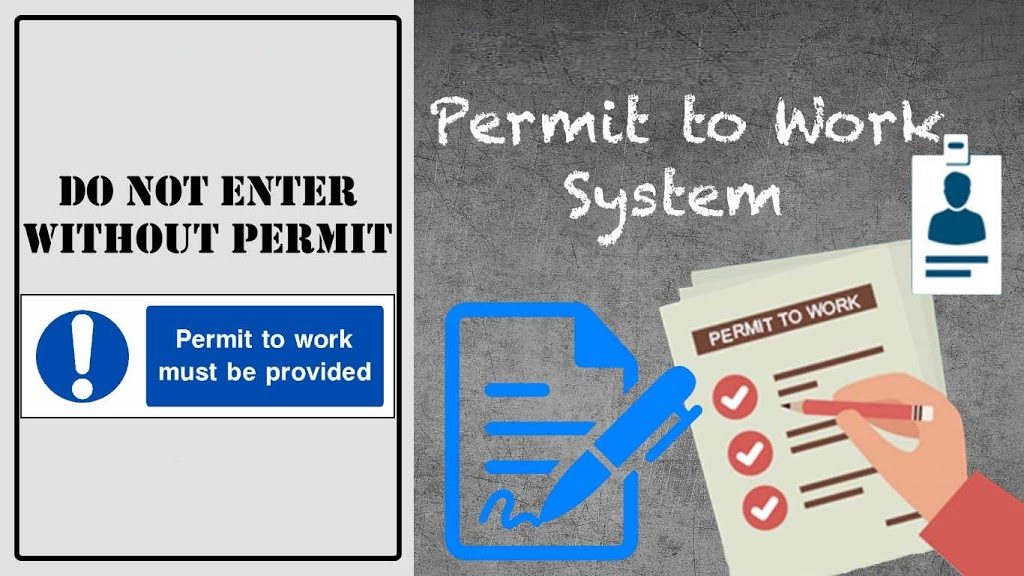Permit To Work (PTW) is a safety program initiated for high-risk activities. It is a core element of integrated safe system of work (ISSOW) systems, along with risk assessment and isolation planning. It enables as low as reasonably practicable (ALARP) reduction of unsafe activities in non-trivial work environments. Permit to work adherence is essential in process safety management.

Types of Work Permit
There are several types of work permits, such as:
- Hot Work Permit
- Cold Work Permit
- Confined Space
- Radiography
- Vehicle Entry
Hot Work Permit
Hot Work Permits are needed for each building where Hot Work will be performed (utility tunnels are considered to be separate buildings)
Hot Work is defined as cutting, welding, soldering and brazing operations for construction/demolition /maintenance/repair activities that involve the use of portable gas or arc welding equipment. The use of these types of equipment for cutting and welding can introduce significant fire hazards into buildings.
Cold Work Permit
Any job that doesn’t require any ignition comes under cold work. Cold work is basically a plastic deformation process caused by pressing and/or rolling at room temperature.
There are several types of cold work jobs happening in plants:
-
Rolling
-
Spinning
-
Drawing
-
Extruding
-
Pressing
Confined Space Work Permit
Construction and maintenance activities in industrial environments can often involve work in confined spaces. A confined space incident can be sudden and lead to multiple fatalities. People vastly underestimate their ability to enter a restricted area or an oxygen-depleted environment to rescue a fallen co-worker, sometimes with tragic consequences. Simply putting your head into an oxygen-depleted atmosphere (for example by looking into a nitrogen-filled tank through a manhole) can result in loss of consciousness in as little as 15 – 20 seconds followed by death in 2-4 minutes.
Radiography Work Permit
Industrial radiography uses radiation to assess the integrity of structures. While this type of work is an essential tool for construction and engineering, it presents a potential radiation hazard. It is thus important to protect individuals, the public at large, and the environment from such risks.
Environmental Health and Safety utilizes an INDUSTRIAL RADIOGRAPHY PERMIT program aimed at industrial radiography service providers. Only permit holders may execute this type of work on campus. The Industrial Radiography Permit program is maintained by the Radiation Safety Division of EHS, and its objective is to minimize radiation risks associated with this type of work and to promote safe working practices. Industrial Radiography Permits are issued to each service provider for a defined period of time as needed by the service provider. Periodic inspections of the work site are conducted by the Radiation Safety Division.
Vehicle/Mobile Plant Entry Work Permit
Any Vehicle or Mobile Plant will not be allowed to enter into a hazardous area except under duly authorized Entry Permit subject to approval from Transport Operation and authorization by the Permit Issuer.
The work permit system is an essential safety measure that helps ensure that all work carried out is done so under controlled conditions. With the use of work permits, workers can be confident that they are working in a safe environment, and any potential hazards have been mitigated. It is important that all workers adhere to the regulations outlined in the work permit system to minimize the risk of accidents and injuries.




